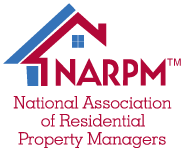If you're a Houston landlord or real estate investor, rising fair market value is great—until it's time to sell. Then you could face capital gains taxes, depreciation recapture, and a steep bill just to pay tax on your success.
Luckily, a Texas 1031 exchange offers a powerful way to defer capital gains taxes. By reinvesting your sale proceeds into another like-kind property of equal or greater purchase price, you can keep more equity working for you while deferring taxes.
Whether the property is located in Midtown, Katy, or beyond, this guide covers what you need to know to make the most of a 1031 exchange.
What Is a 1031 Exchange?
A 1031 exchange—as defined in the Internal Revenue Code—allows real estate investors to defer paying capital gains taxes on a property sale if they reinvest the proceeds into another real property of equal or greater fair market value.
This is known as a like-kind exchange, and it’s available exclusively for investment properties or commercial real estate, not personal property.
The goal? Use this tax deferral strategy to preserve wealth, improve cash flow, and grow your investment portfolio without facing the immediate hit of federal capital gains taxes.
Key Types of 1031 Exchanges
- Delayed Exchange
This is the most common and IRS-compliant form of real estate exchange. After selling your relinquished property, you must identify potential replacement properties within 45 days and acquire one or more of them within 180 days.
- Reverse Exchange
In this model, the replacement property is purchased before the relinquished property is sold. This offers flexibility but is logistically complex, involving the holding of the acquired property in an exchange account managed by a qualified intermediary.
- Construction or Improvement Exchange
You can use exchange funds to build or renovate a replacement property, as long as it’s completed and the title is transferred within 180 days, per IRS regulations.
- Related Party Exchanges
These involve trading properties with a family member or related entity. They are permitted, but closely scrutinized by the Internal Revenue Service, especially if the properties involved are not held for a minimum period.
IRS Requirements for a Valid Exchange
To qualify for a tax-deferred exchange, Houston landlords must follow these key guidelines:
- Use Investment or Business Property Only
Both the relinquished and replacement properties must be held for business or investment—not personal use.
- Exchange Only Real Property
The transaction must involve real property—no equipment, furniture, or other personal property qualifies.
- Identify Replacement Properties Properly
Within 45 days of the sale, you must identify up to three properties (the Three-Property Rule) or use the 200% Rule, where you list more than three properties whose combined fair market value doesn’t exceed 200% of the relinquished property's value.
- Complete the Exchange Within 180 Days
You must close on the replacement property within 180 days of selling the original asset or by the tax year’s due date, including your federal income tax return, whichever is earlier.
- Avoid Constructive Receipt
To retain tax deferral benefits, you cannot touch the sale proceeds. They must be held by a qualified intermediary in a dedicated exchange account.
Choosing a Qualified Intermediary (QI)
A qualified intermediary plays a crucial role in any 1031 exchange by managing the exchange funds, preparing the necessary legal documents, and ensuring full compliance with IRS regulations.
They receive and hold the sale proceeds, oversee the purchase of the replacement property, and prevent constructive receipt, which could result in a taxable gain.
It's important to select a QI with in-depth knowledge of the Texas real estate market and proven experience handling 1031 exchanges in Texas to ensure a smooth, compliant transaction.
Identifying Potential Replacement Properties
The IRS allows real estate investors to identify up to three identified properties, regardless of their value. Alternatively, they can identify multiple properties if the total fair market value doesn’t exceed 200% of the relinquished property’s value.
Under the 95% rule, any number of properties can be selected, as long as the investor acquires at least 95% of the combined value of all identified properties.
It's essential that the chosen replacement properties support your long-term investment objectives, whether you're targeting a shopping center, office building, or multi-unit rental properties.
Texas-Specific Considerations for Landlords
While Texas has no state income tax, property owners in Houston should still be mindful of other financial considerations. High property taxes can significantly impact cash flow, and areas near Buffalo Bayou or low-lying neighborhoods may be prone to flooding, increasing risk and insurance costs.
Additionally, shifts in the commercial real estate and residential investment property markets can influence long-term returns. To navigate these challenges and identify profitable opportunities, it's essential to work with knowledgeable real estate professionals, including experienced agents and property managers.
Common 1031 Exchange Mistakes to Avoid
- Touching the Funds: This violates the constructive receipt rule.
- Missing the 45/180 Deadlines: No extensions allowed.
- Incorrect Property Use: Only investment properties or those used in business qualify.
- Overlooking QI: Skipping a qualified intermediary disqualifies the exchange.
- Partial Reinvestment: Any leftover cash or seller financing received will be considered boot and is taxable.
Final Steps and Filing
To complete a 1031 exchange, Houston landlords must:
- Consult a tax advisor and real estate agent
- Hire a qualified intermediary
- Open an exchange account
- Sell the relinquished property
- Identify replacement properties within 45 days
- Acquire one or more replacement properties within 180 days
- File IRS Form 8824 with your income tax return to report the exchange and claim tax deferral
Conclusion
Executing a 1031 exchange is more than just swapping properties—it's about minimizing tax liabilities, preserving wealth, and accelerating your path to long-term financial success through strategic real estate investments. The process is technical and strictly governed by IRS regulations, but the payoff is significant.
Whether you're upgrading from a duplex to a commercial property, consolidating your real estate portfolio, or targeting higher cash flow, the tax benefits of a well-structured like-kind exchange are undeniable.
Don’t go it alone. Let the experts help you do it right. Contact Residential Leasing and Management Systems today—Houston’s trusted resource for guiding landlords through smart, seamless 1031 exchanges in Texas.
Our experienced team will connect you with reputable QIs, help identify top-performing replacement properties, and ensure your next real estate exchange builds your wealth, not your tax liability.
FAQ: 1031 Exchange Rules for Houston Landlords
Q1: Can I exchange a rental home for a commercial property like a shopping center or office building?
A: Yes, under the like-kind exchanges rule, all types of real property held for investment or business use qualify—even if they differ in type or location.
Q2: What happens if I only reinvest part of my sale proceeds?
A: The unused portion is considered boot and will be taxed as capital gains.
Q3: Is a 1031 exchange only for Texas properties?
A: No. You can exchange any U.S.-based real property, but both the relinquished and replacement properties must be within the United States.
Q4: Can I use a 1031 exchange for a property I eventually want to live in?
A: Yes, but you must rent it out first for a set period—usually two years—before converting it to personal use, per IRS regulations.
Q5: Do I have to use all my funds to buy just one property?
A: No. You can purchase multiple properties, as long as you follow the three-property rule or the 200% combined fair market value rule.
Q6: Can I sell a property with seller financing and still qualify?
A: Possibly, but any seller financing you receive may be considered boot and taxable unless properly structured.
Q7: What form do I file with my federal income tax return for a 1031 exchange?
A: You must file IRS Form 8824 with your tax return for the year the exchange occurred.


.png)





